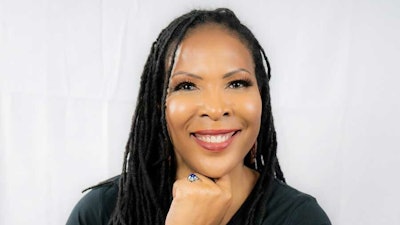“Since the second decade of the nineteenth century, black-owned book publishing has existed in the United States, the books released by these publishing enterprises have vindicated blacks, documented black culture and history, and addressed the special concerns of black people in ways which white book publishers have not. The fascinating story of the book publishing efforts of black Americans have been largely ignored by historians.” (Joyces, 1991, p. xi)
 Dr. Ayo Sekai
Dr. Ayo Sekai
The historical significance of Black publishers is astounding. In a time when we are witnessing significant overturns in landmark political and legislative achievements like affirmative action for equity for Black people in the United States, the erasure of Black bookstores, and the banning of not just Black books but Black Studies in school rooms — now more than ever — we need to celebrate the significant contribution of Black publishers that have championed the scholarship of authors who have penned activism such as “Archard H. Boyd’s The Separate or “Jim Crow” Car Laws,” (Joyces, 1991, p. xi) as noted since 1909. From the NAACP in 1914 with the publication of A Child’s Story of Dunbar by Julia Henderson to ASALH founded by Carter G. Woodson in 1915, from the Harlem Renaissance to the Black Arts Movement, Black activism has surfaced in well-known titles such as Invisible Man, by Ralph Ellison, the ROOTS saga by Alex Haley and other notable Black authors such as Sonia Sanchez, Nikki Giovanni, and Audre Lorde.
An historical blueprint is provided by some of the world’s most brilliant revolutionaries, entrepreneurial minds, and activists. From Black banks, Black cities, Black Wall Street, Black designers, Black universities (or HBCUs), and Black hospitals, the fundamental and operative word has been Black. Forced captivity, enslavement, disenfranchisement, and deliberate divisions based on race, colorism, sexism, gender differentiation, language, tone, accents, and demographics are intentional viruses meant to plague the ability for Black success. But resilience, determination, grit, and sheer defiance have kept the desire to rise despite the countless abuse and attacks systematically entrenched in the American roots. One must wonder why there are so many notable scholars, publishers, and Black intelligencia throughout history, yet we remain invisible. It is by no fault of our own that we do not know viable presses such as Black Classic Press, founded by Paul Coates (1978), Third World Press, founded by Haki Madhubuti (1967), Africa World Press/Red Sea Press by African Activist, Kassahun Checole (1983), and Just Us Books by the Hudsons (1988), collectively known as the LEGENDS IN BLACK PUBLISHING. Among them are presses such as Black Academy Press (1991), TSEHAI Publishers (1997), UWP Social Science Press (2004), and pioneering magazines, like Essence, Ebony, and Diverse Magazine, that are not only courageous examples of defiance and fortitude in the Black community, but have put the names of Black authors, Black faces, and Black excellence on the map as household names, research references, and media celebrities for centuries.
As we celebrate this 40th anniversary of Diverse: Issues In Higher Education, let us reflect on their remarkable accomplishment and celebrate the careers they have uplifted, supported, and enhanced as much as those who continually support them. The truth is that since the 17th century, Black publishers of all printings have been fighting for the same things and are met with the same obstacles. Gatekeepers would have us remain invisible, and the political and socio-economic rhetoric would have us locked into imposter syndrome, cognitive dissidence, and gaslighting through dog whistle tactics and misinformation. As we have done in the face of adversity from 1619 to today, we must continue to stand united. Buy Black, go to HBCUs, and stop the exportation of Black knowledge, talents, and merits that are consistently questioned and undermined. Use the power of the Black dollar and reignite the power of togetherness, pride, and community.
![Ayo Sekai1[407085]](https://img.diverseeducation.com/files/base/diverse/all/image/2023/10/AyoSekai1_407085_.651e06b004174.png?auto=format%2Ccompress&crop=faces&fit=crop&h=48&q=70&rect=0%2C28%2C1483%2C834&w=48)




















